Before the pandemic, Tennessee’s children were improving but still struggling with poverty, obesity, education, and more, according to a new national report that scored the state in the bottom half of all states on key metrics.
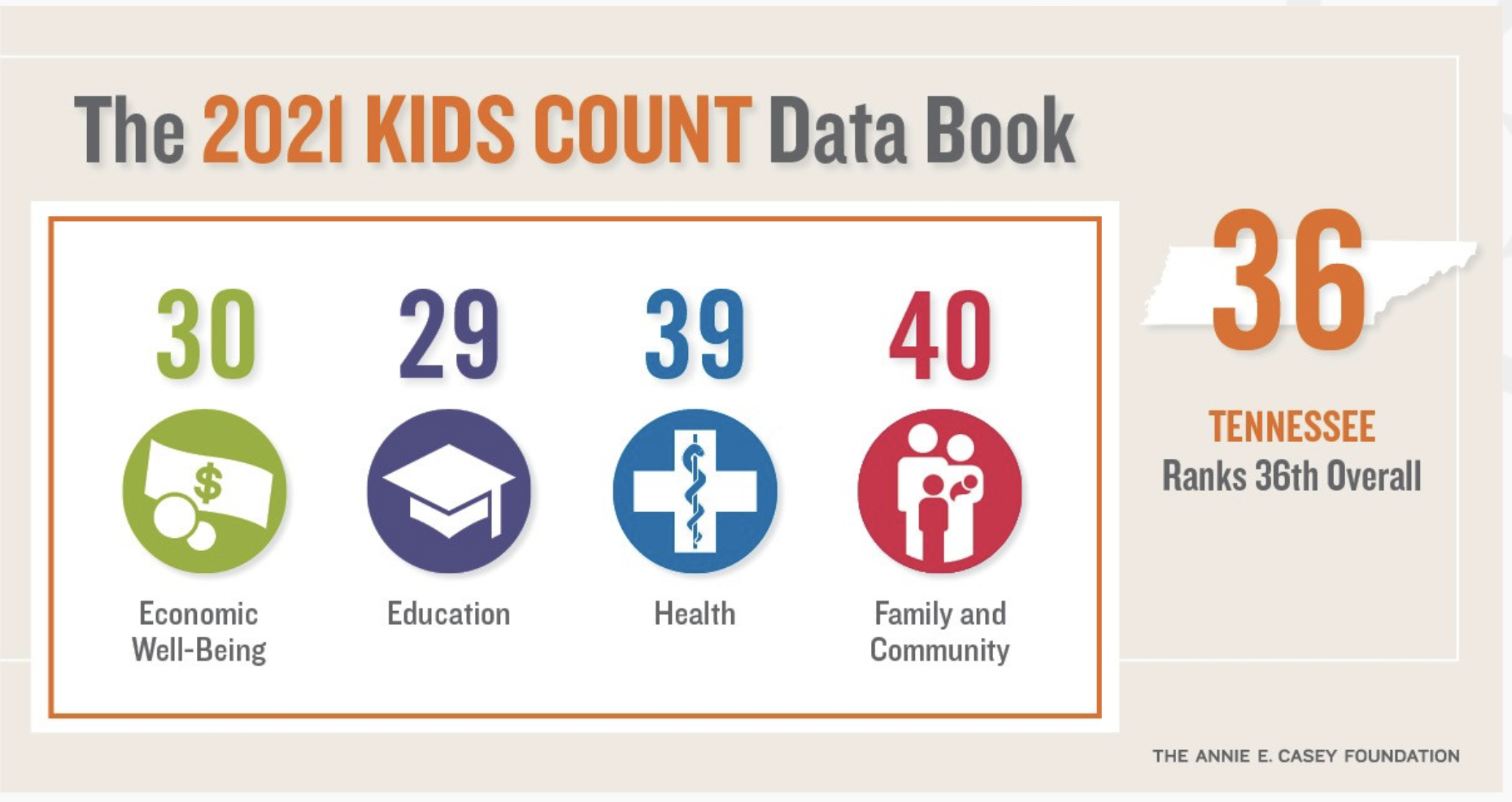
The 2021 Kids Count Data Book is published annually by the Annie E. Casey Foundation and with cooperation this year by the Tennessee Commission on Children and Youth. The report ranked Tennessee 36th for the well-being of its children in four major categories — economic well-being, education, affordable health care, and family and community context.
“Tennessee has moved up and down in a small rank space over the last decade, landing between 35 and 39 every year,” the report says. “Tennessee has seen improvements in child well-being over this decade, but they have largely been national improvements that left Tennessee in roughly the same relative position.”
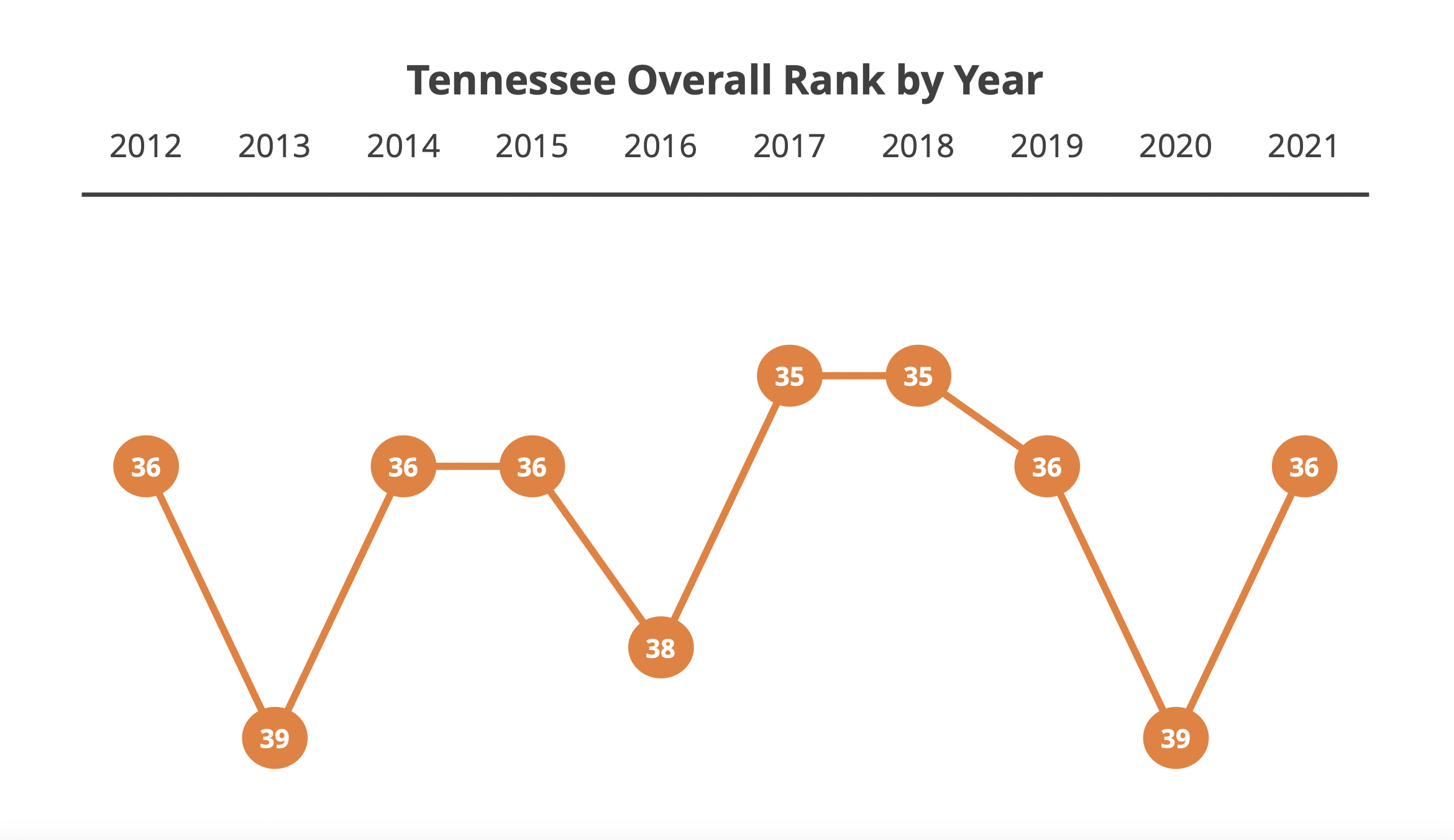
The information in the study is the latest but it does not cover the last year. So, the figures in it really give a snapshot of Tennessee children before the pandemic and in its early stages.
That data shows “nearly a decade” of progress in jeopardy of being “erased by the COVID-19 pandemic unless policymakers act boldly to sustain the beginnings of a recovery from the coronavirus crisis.” Data book researchers said ”simply returning to a pre-pandemic level of support for children and families would shortchange millions of kids and fail to address persistent racial and ethnic disparities.”
“This is a pivotal time for Tennessee and we need to invest in our children in a strong, equitable, and sustainable way,” said Richard Kennedy, executive director of Tennessee Commission on Children and Youth, Tennessee’s member of the Kids Count network.
Here’s a glimpse into some of the study’s key finding about Tennessee.
• Economic well-being: In 2019, one in five children lived in households with an income below the poverty line. Though higher than the national average, this percentage has decreased by 23 percent over the past decade.
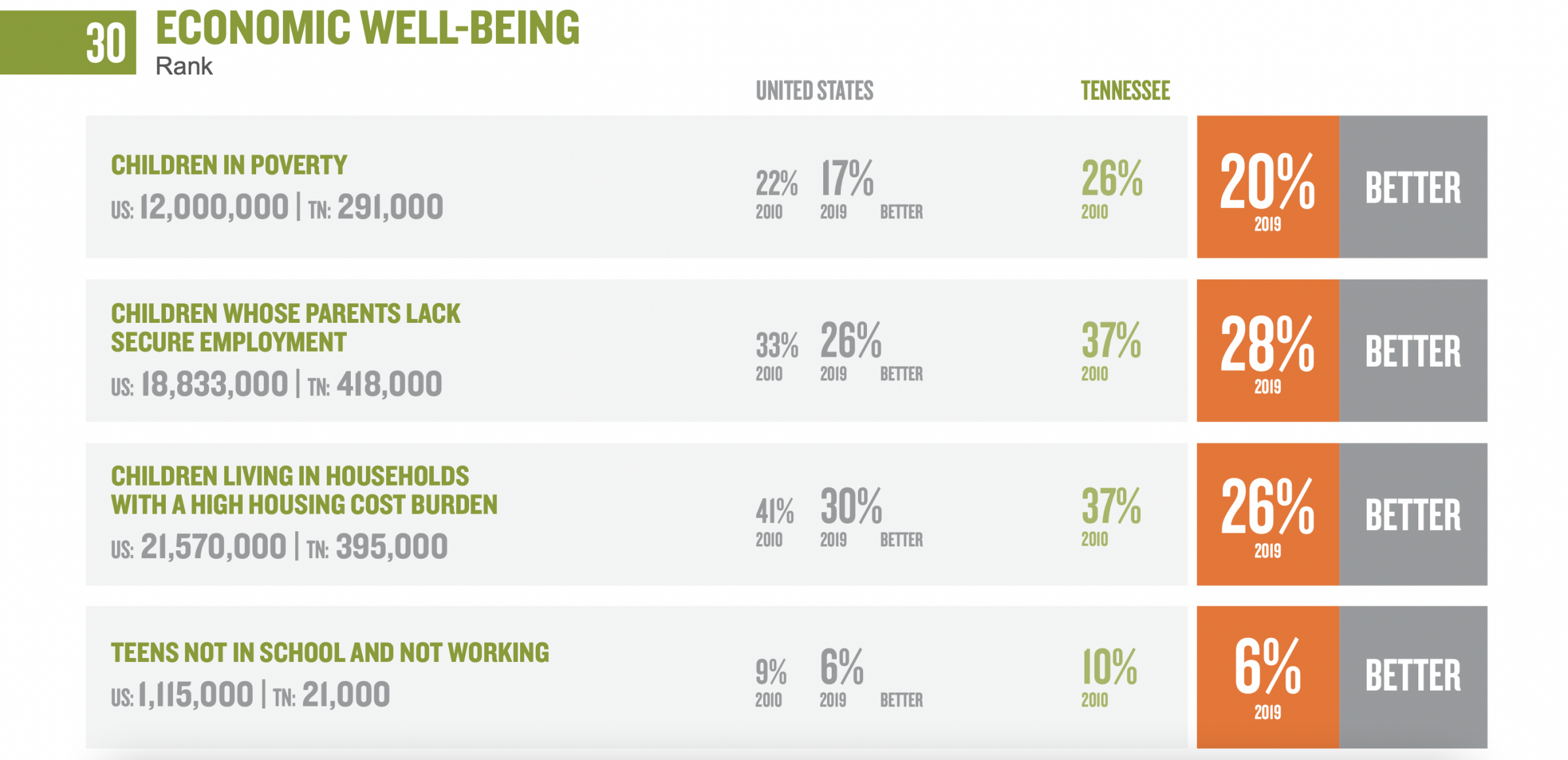
• Education: In 2019, 60 percent of young children (ages three and four) were not in school. This percentage has remained consistent in Tennessee, fluctuating little throughout the last decade.
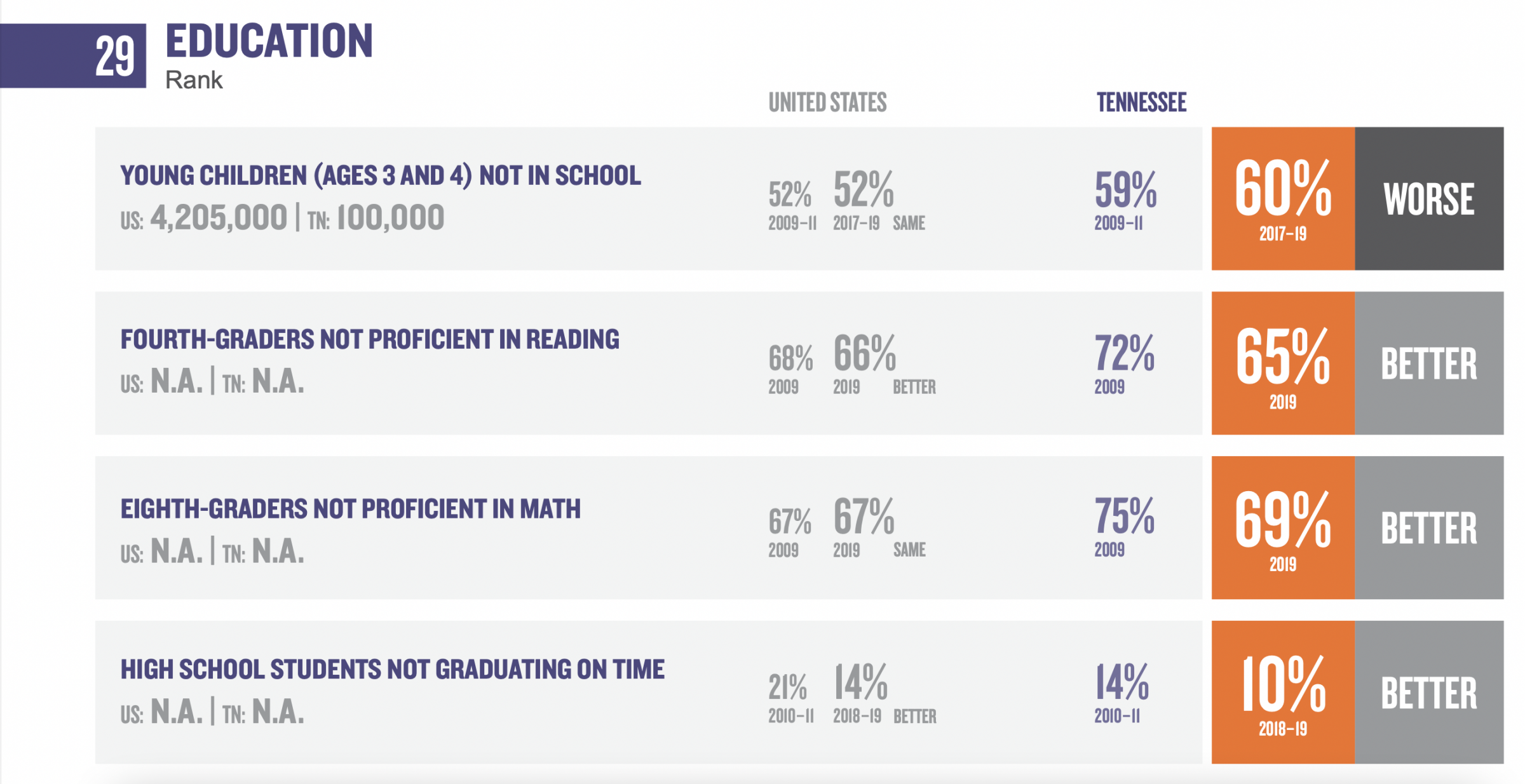
• Affordable health care: In 2019, 80,000 Tennessee children did not have health insurance. Many of these children may be eligible for TennCare or CHIP. The year prior there were more than 55,000 uninsured children in Tennessee who were eligible for coverage through one of these programs.
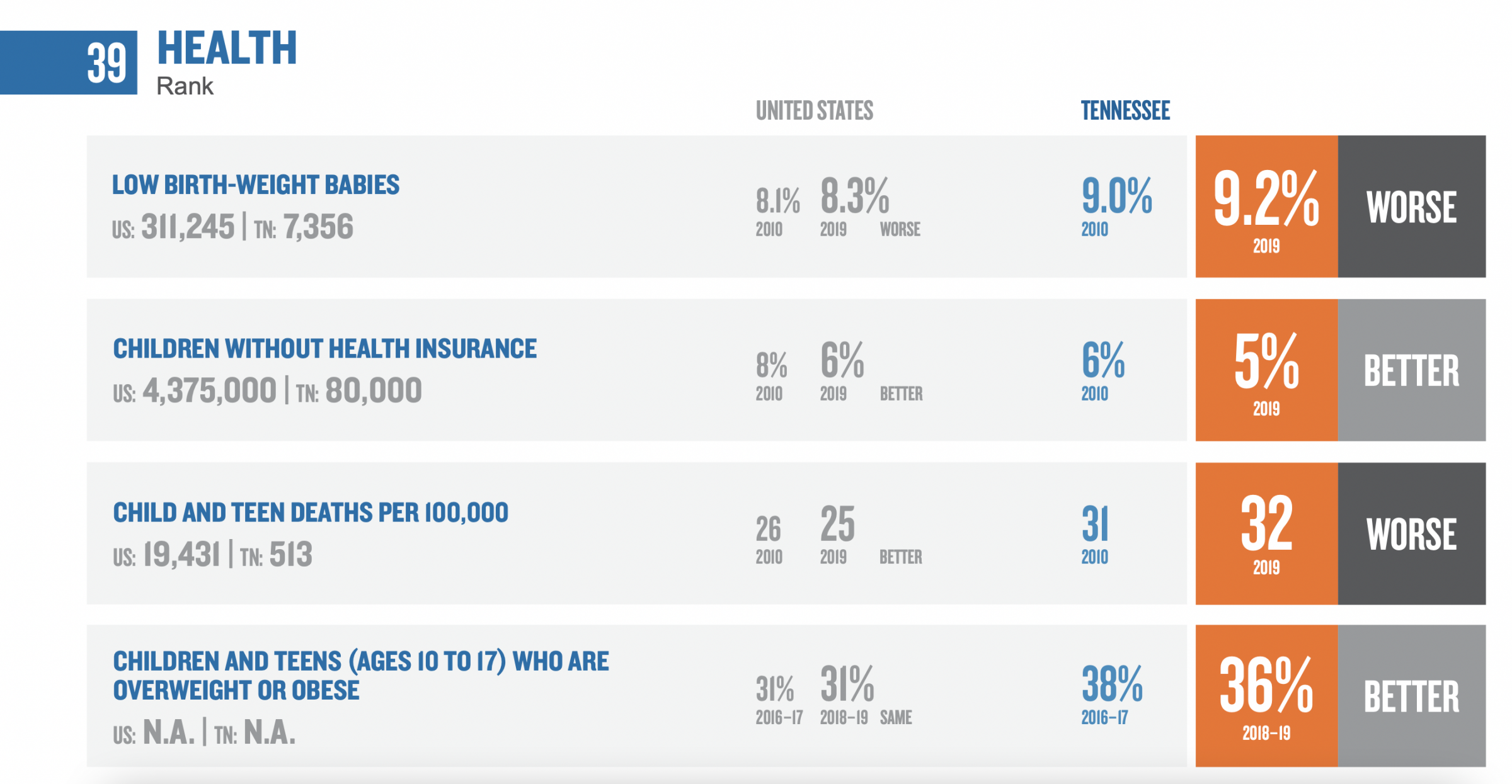
● Family and community context: In 2019, Tennessee experienced one of the highest teen birth rates in the nation. Tennessee’s teen birth rate is 34 percent higher than the national average.
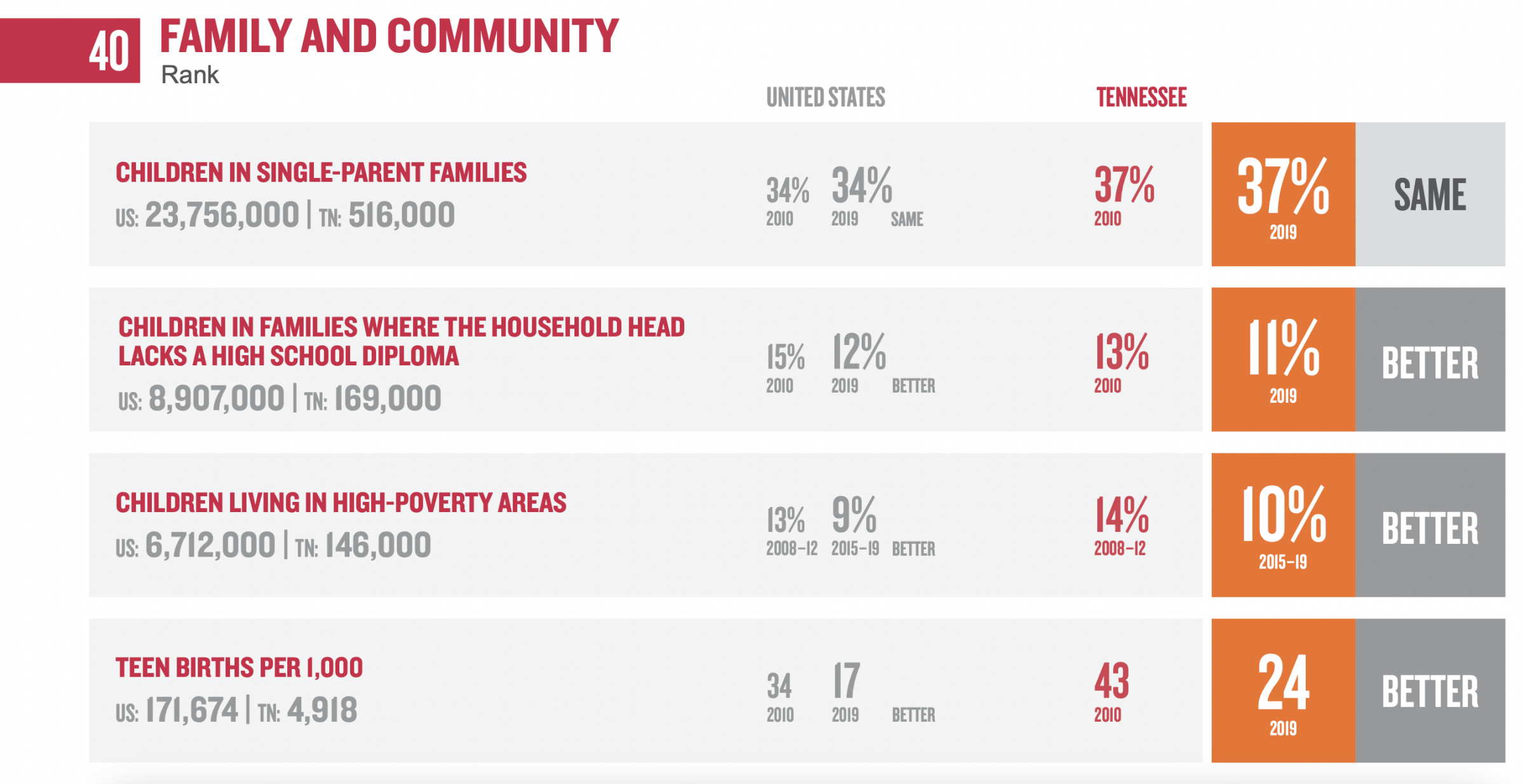
Pandemic survey
While the study did not cover the pandemic, researchers conducted surveys across Tennessee to gauge child well-being. Here are some key findings.
• During the pandemic, in 2020, 23 percent of adults in Tennessee with children in the household had little to no confidence in their ability to pay their next mortgage or rent payment.
However, by March 2021, this figure had fallen to 13 percent, suggesting the beginnings of a recovery. Although confidence is increasing, disparities persist, with 26 percent Black or African American Tennesseans reporting a lack of confidence in paying the rent or mortgage in March 2021.
• Tennessee has seen great improvement in children’s access to internet and digital devices for schooling. In 2020, more than one in five children did not have access. By 2021, that number has been reduced to 13 percent.
• Despite improving indicators, nearly one in four adults in Tennessee with children in the household reported feeling down, depressed, or helpless in 2021, a number that remained unchanged since 2020.
“The COVID-19 pandemic is the most extraordinary crisis to hit families in decades,” said Lisa Hamilton, president and CEO of the Annie E. Casey Foundation. “Deliberate policy decisions can help them recover, and we’re already seeing the beginnings of that. Policymakers should use this moment to repair the damage the pandemic has caused — and to address long-standing inequities it has exacerbated.”
